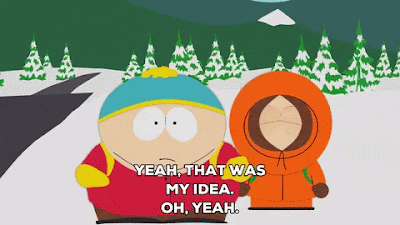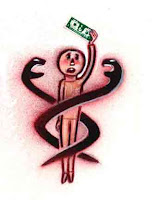Change or Die
Every New Year’s people make resolutions to change. Few resolutions last.
In fact, research has shown that even if someone knows 100% for sure that their actions are endangering their life, only 10% would actually change their behaviour.
Yes, you read that correctly -- in the face of death, 90% of people will choose to die, rather than change their long-term habits.
Just about everyone in Western society knows that eating too much fat, salt, and sugar will kill them. They know that smoking and heavy drinking will kill them. This doesn’t seem to matter.
As a result, 80% or more of the health care budget is spent on diseases that are completely preventable. Have a look at the top five causes of death for developed countries:
All of these are primarily behavioural. Meanwhile, they are draining critical resources from our health care system that could be focused on emergencies and other unavoidable issues.
So next time you’re complaining about the wait time at the emergency room, think about that greasy cheeseburger you wolfed down earlier, and the person that will be waiting in your spot once they’ve admitted you with blocked arteries.
This phenomenon applies to much more than health. It applies to technology, politics, and day to day life. See the original article from 2005 here: http://www.fastcompany.com/magazine/94/open_change-or-die.html
In fact, research has shown that even if someone knows 100% for sure that their actions are endangering their life, only 10% would actually change their behaviour.
Yes, you read that correctly -- in the face of death, 90% of people will choose to die, rather than change their long-term habits.
Just about everyone in Western society knows that eating too much fat, salt, and sugar will kill them. They know that smoking and heavy drinking will kill them. This doesn’t seem to matter.
As a result, 80% or more of the health care budget is spent on diseases that are completely preventable. Have a look at the top five causes of death for developed countries:
- Heart disease
- Stroke
- Respiratory infection
- Lung cancer
- Car accident
All of these are primarily behavioural. Meanwhile, they are draining critical resources from our health care system that could be focused on emergencies and other unavoidable issues.
So next time you’re complaining about the wait time at the emergency room, think about that greasy cheeseburger you wolfed down earlier, and the person that will be waiting in your spot once they’ve admitted you with blocked arteries.
This phenomenon applies to much more than health. It applies to technology, politics, and day to day life. See the original article from 2005 here: http://www.fastcompany.com/magazine/94/open_change-or-die.html



Comments
Post a Comment